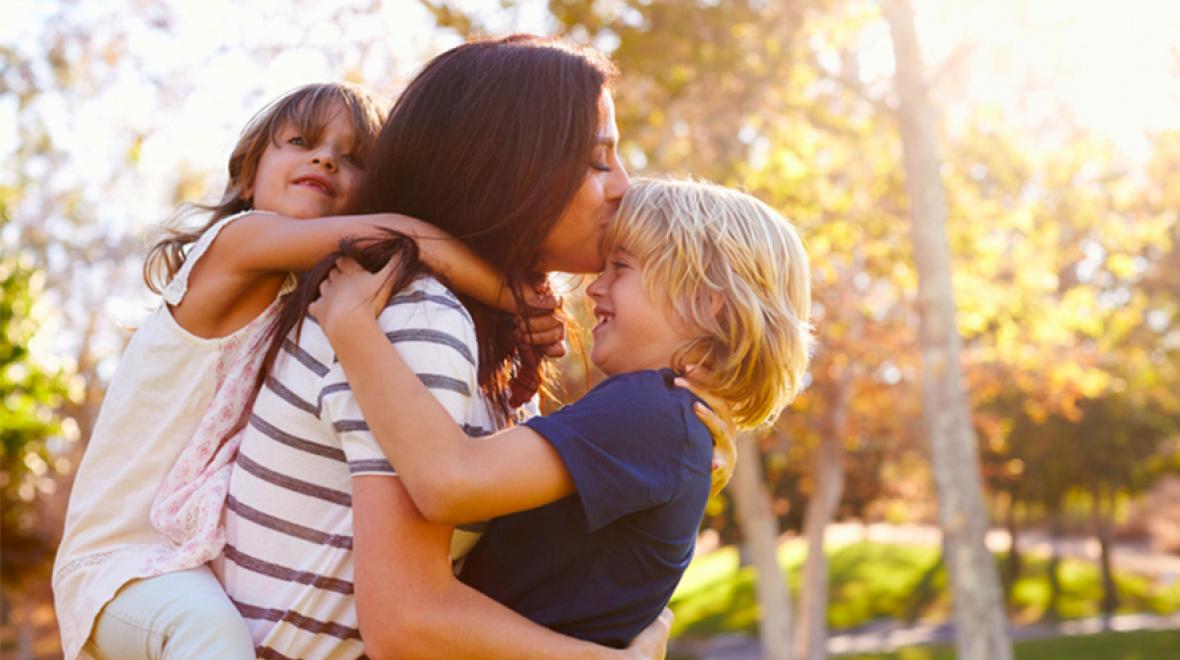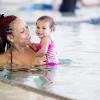
We moved to Germany when my kids were 5 and 7. In the four years since, I’ve experienced culture shock, growing pains and intense anxiety as I’ve attempted to navigate this new culture and education system.
Now, as I reflect on my family’s time living abroad, I realize that my parenting has changed in some ways I didn’t expect.
I’m not as scared of germs
In the U.S., I felt like a bad parent if I forgot to sanitize the shopping cart. When my friends and I stopped for lunch, we gave our kids a dab of hand sanitizer. Same thing when we got back to the car from the children’s museum.
Teachers also reinforced the idea that hand sanitizer was a necessity. Each school year, large bottles were a staple of classroom supply lists, and our kids were encouraged to use them. Being so vigilant made me feel like I was doing my part to keep my kids healthy.
Then, we moved to Germany.
We ran out of sanitizer within the first few weeks and when I went to buy more, I was horrified to discover that they didn’t sell it here. Or, at least, I couldn’t find it.
At first, it felt stressful not to clean my kids’ hands after every potential germ exposure. After a few weeks, though, I forgot about it. And without the constant reminder of hand sanitizer, I stopped thinking about germs.
That’s not to say there haven’t been times when I wished I had it — the time my son picked up a plastic toy from an unidentified puddle of yellow liquid in the train station comes to mind — but overall, I think we are more relaxed and happier. We certainly have been just as healthy.
I’m not as scared of chemicals
Since moving to Germany, when I need sunscreen or bug repellant, I just go to the store and buy it.
I no longer feel a compulsive need to research the safety ratings and painstakingly balance what we can afford against what’s the “safest.” You can chalk this up to my lack of mastery of the language but still, it’s a major shift.
Thanks to my limited vocabulary, I’ve had to let go of all of the BPA, formaldehyde and sunscreen chemical fears — and it has been so liberating! Now, I don’t even read the label; I just purchase what's on sale.
Sure, maybe my kids are getting exposed to minute amounts of chemicals that may or may not be bad for them, but I think the actual benefits of time, sanity and cost outweigh any unproven risks. In the U.S., I couldn’t be so relaxed. The constant bombardment of sensationalized headlines and fellow moms' opinions often left me feeling stressed-out and anxious, despite the illusion of control all my frantic research provided.
I’m more scared about talking about the birds and bees
When I lived in the U.S., I considered myself pretty open and confident. Both my kids can’t even remember a time when they didn’t know where babies came from. But the first time I read a German sex ed book, I blushed — and it was written for kids ages 5 and up!
Compound that with the fact that every summer there’s a cartoony safe sex ad campaign with billboards on every train platform and I’ve had significantly more detailed conversations with my kids about sex than I would ever have had in the U.S. And it is intimidating.
In fact, once I found myself in the awkward position of choosing whether to explain S&M or condoms to my 5-year-old. (The ad that inspired the conversation showed a couple wearing chain collars with the tag line, “Whatever you like, make sure to use a condom.”) I still feel a little scarred but my son took it in stride.
I’m more scared of bullying, too
In the U.S., I felt reasonably confident that my kid would be protected from physical danger while at school. I know that bullying is a problem in the States, too, but in the U.S. teachers typically intervene if they observe things coming to blows. Here, kids are usually left to work things out for themselves.
I was shocked to discover that the moral of a German anti-bullying book geared toward elementary school students was that telling the teacher didn’t help but hitting the bully did.
That, among other reasons, is how I found myself begrudgingly telling my son that he could hit back but only after he used his words, tried to tell a teacher and moved away from a particularly aggressive bully. I will never forget the day he skipped home from school so proud of himself.
“Mom, guess what?” he said. "I punched the bully today!”
Trying to stay neutral, I gently asked him if he used his words first. Turns out he forgot that part — and I’m stuck between feeling glad that he ended the bullying, and sad that he learned that using his fists worked.
My kids have more independence here
In Germany, I let my kids walk to the bakery alone starting at age 6. Now that they’re 9 and 11 they walk a mile across several busy roads and take the subway three stops stops for their piano lessons. These are all things I never would have considered allowing in the U.S.
My kids aren’t allowed to have more freedom because Germany is inherently safer. It's because in Germany, giving kids independence is supported and encouraged by the community. Not only that, but parents have the freedom to make their own risk assessments.
In the U.S., I often parented based on how I thought strangers would perceive my decisions. Fear of having the police called on me — rather than what I thought was best — stopped me from letting my kids ride the bike path alone.
At the time, this frustrated me. After four years away, it makes me sad.
I have seen my children’s self-esteem and independence blossom as they get more freedom. What if this were true for all kids?
Of course, this isn’t to say I’m not a basket case when my child leaves on a four-day field trip with her class of 26 students accompanied by only two teachers as chaperones, but I am growing to appreciate the assumption that kids can handle themselves and be responsible.











